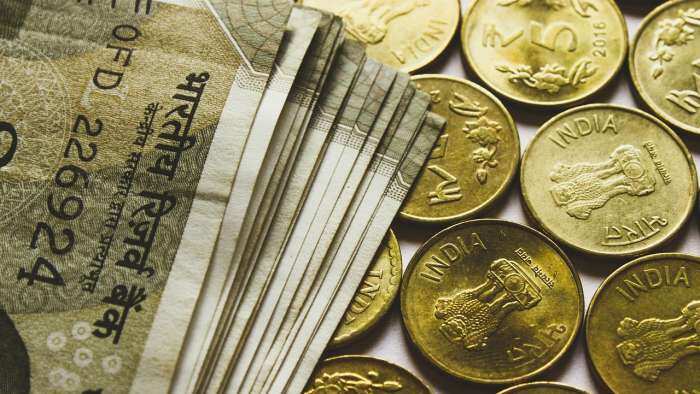Got notice from Income Tax department? Know possible reasons and transactions
The high-value transactions must be always reported to the income tax department if the value surpasses a particular threshold.

If an individual makes high-value cash transactions, there is a strong possibility that he/she might get a notice from Income Tax Department. The different cash-related transactions include banks, mutual fund houses, brokerages, and property registrars. The high-value transactions must be always reported to the income tax department if the value surpasses a particular threshold.
The Income Tax Department has settlements with multiple government agencies to obtain financial records of individuals who indulge in high-value transactions but do not report them on their tax filing. Amit Gupta, MD at SAG Infotech, shares a few examples of transactions due to which may have received or may recieve a notice from the Income Tax department.
Making deposits in bank FD
"Cash deposits in bank FD should not exceed INR 10 lakh. It is advised to a bank depositor making a cash deposit in a bank FD account that it must not surpass the INR 10 lakh cap. The Central Board of Direct Taxes (CBDT) has announced that banks must reveal if individual deposits are more than the prescribed limit in one or more fixed deposits," Amit Gupta said.
Making deposits in savings bank accounts
Further, Amit Gupta adds, "The cash deposit cap in a bank account is INR 10 lakh. If a savings account holder deposits more than INR 10 lakh during a financial year, the income tax department may serve an income tax notice. Meanwhile, cash deposits and withdrawals in a bank account crossing INR 10 lakh limit in a financial year must be revealed to the tax authorities. In current accounts, the cap is INR 50 lakh."
Paying credit card bills
"As per the CBDT, payment of INR 1 lakh or more in cash against credit card bills should be reported. Additionally, if payment of INR 10 lakh or higher is paid in a financial year to settle credit card bills, the payment must be disclosed to the tax department. However, the foremost crucial concern is the income tax that applies to credit card transactions. You need to check that you don’t cross your credit card spending cap, since the tax authority keeps track of credit card transactions as your credit card details are linked with your PAN Card, and thus it can be easily monitored online by the government. Any big transaction should be revealed while filing ITR. In case you are using credit cards on any high-value transactions, make sure to disclose them on Form 26AS while filing your ITR to avoid getting an income tax notice," he suggested.
Purchase or sale of an immovable property
"The property registrar must have to reveal any investment or sale of immovable property for an amount of INR 30 lakh or more to the tax authorities. The property buy/sale transaction should be reported on your Form No. 26AS. In case, you are purchasing or selling property for more than INR 30 lakhs, then also you are on the Income- Tax Department’s radar. The Income Tax Department may examine whether the buyer has reported the income on his/her tax return," he added.
Shares, mutual funds, debentures, and bonds related cash transactions
Gupta says, "Certain people who invest in mutual funds, stocks, bonds, or debentures must ensure that their cash transaction in these investments does exceed INR 10 lakh. The I-T department has created an Annual Information Return (AIR) statement of financial transactions to trace high-value transactions of taxpayers. Tax officials will gather details against unusual high-value transactions on this basis in a particular financial year. In case any expense or transaction has been listed as a high-value transaction, verify the AIR section of your Form 26AS. PART -E of Form 26AS combines details about the high-value financial transactions."
Sale of foreign currency and indulging expense of foreign exchange
"An amount of INR 10 lakh or more in a financial year received by any individual for the sale of foreign currency, along with any credit in such currency, through a debit card or credit card or insurance of traveller’s cheque, draft or other instruments, should be notified to the income tax department," Amit Gupta concluded.
(Disclaimer: The views/suggestions/advice expressed here in this article are solely by investment experts. Zee Business suggests its readers to consult with their investment advisers before making any financial decision.)
Get Latest Business News, Stock Market Updates and Videos; Check your tax outgo through Income Tax Calculator and save money through our Personal Finance coverage. Check Business Breaking News Live on Zee Business Twitter and Facebook. Subscribe on YouTube.
RECOMMENDED STORIES

Power of Compounding: How soon will monthly SIP of Rs 6,000, Rs 8,000, and Rs 10,000 reach Rs 5 crore corpus target?

SBI Guaranteed Return Scheme: Know how much maturity amount you will get on Rs 2 lakh, 2.5 lakh, 3 lakh, 3.5 lakh and Rs 4 lakh investments under Amrit Vrishti FD scheme

SBI Senior Citizen FD Rate: Here's what State Bank of India giving on 1-year, 3-year, 5-year fixed deposits currently

SBI Senior Citizen Latest FD Rates: What senior citizens can get on Rs 7 lakh, Rs 14 lakh, and Rs 21 lakh investments in Amrit Vrishti, 1-, 3-, and 5-year fixed deposits
06:17 PM IST









 Income tax return filer base up 2.2 times in 10 years, 5 times growth in Rs 50 lakh-plus income category: Sources
Income tax return filer base up 2.2 times in 10 years, 5 times growth in Rs 50 lakh-plus income category: Sources  This is India's only tax-free state, residents earn crores without paying Income Tax
This is India's only tax-free state, residents earn crores without paying Income Tax I-T Act review: Government to invite suggestions from industry next month
I-T Act review: Government to invite suggestions from industry next month Net direct tax collections grow 15% to Rs 9.92 lakh crore in a year; advance tax collections up 19%
Net direct tax collections grow 15% to Rs 9.92 lakh crore in a year; advance tax collections up 19% Income Tax Day 2024: Nirmala Sitharaman to preside over celebrations in New Delhi on Wednesday
Income Tax Day 2024: Nirmala Sitharaman to preside over celebrations in New Delhi on Wednesday